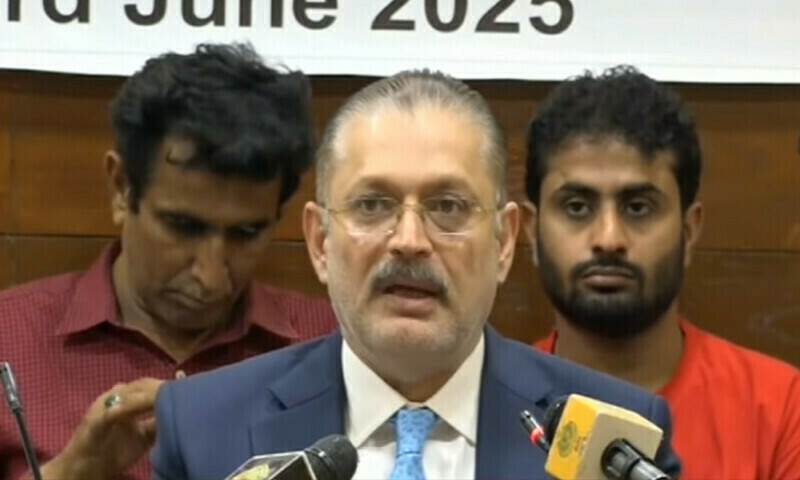Load-shedding over unpaid bills is collective punishment, says Sharjeel Memon
Sindh’s Senior Minister Sharjeel Inam Memon has strongly criticized K-Electric for resorting to excessive load-shedding due to low billing recovery in certain areas, calling the practice a form of collective punishment.
Speaking at a gathering organised by the SITE Association in Karachi, Memon said that despite the scorching summer, parts of Sindh are facing up to 16 hours of power outages daily. “If one person fails to pay the bill, why should the whole neighbourhood suffer?” he questioned.
The minister emphasised that Karachi’s issues are serious and multilayered, but the Sindh government is actively working on several mega projects to improve the city’s infrastructure. “Karachi still attracts people from all provinces for employment. We have great potential and opportunities here,” he noted.
Highlighting the government’s development work, Memon stated that Sindh offers some of the best public healthcare facilities in the country, and the provincial government has already built over 850,000 homes for flood victims, with a total of 2.1 million homes planned.
Chinese company to install charging points for EVs across Sindh
He further announced that the Shahrah-e-Bhutto road up to Quaidabad will be completed in the next two weeks, improving city connectivity.
Responding to criticism, Memon said, “Some people spread negative propaganda that the PPP is doing nothing for Karachi. Peaceful protest is everyone’s right, but blocking roads during protests will not restore electricity.”
He stressed that K-Electric’s load-shedding in low-recovery areas amounts to punishing entire communities, and such an approach is unfair. “You want to protest? Do it in parks or grounds, not on roads,” he said.
Memon’s remarks come amid growing public anger in Karachi and other parts of Sindh over prolonged load-shedding, especially during peak summer months.
For the latest news, follow us on Twitter @Aaj_Urdu. We are also on Facebook, Instagram and YouTube.






















Comments are closed on this story.